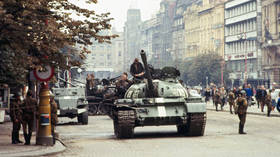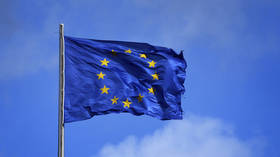Soviet invasions of Hungary and Czechoslovakia were ‘mistakes’ – Putin

The Soviet Union’s decision to send its troops into allied Hungary and Czechoslovakia several decades ago was ill-judged, Russian President Vladimir Putin has admitted, adding that those incursions ran counter to the interests of the people of those countries.
Speaking at the plenary session of the Eastern Economic Forum in Vladivostok on Tuesday, the Russian leader was asked to address criticism from the West accusing Moscow of colonialism over its decision to deploy tanks to Budapest in 1956 and Prague in 1968 to quell popular unrest.
“We have long admitted that this element of the Soviet policy was a mistake that only led to strained relations. One should not do anything in foreign policy that obviously contradicts the interests of other nations,” Putin said.
The president went on to note that the leading Western countries, including the US, are now “stepping on the same rakes” the Soviet Union did. “They put pressure on their allies [and] so-called partners. They don’t have friends, they have only interests,” he noted, referring to the phrase famously coined by British Prime Minister Lord Palmerston in the 19th century.
Last month, Russian Foreign Minister Sergey Lavrov said that while Western countries were trying to preserve their hegemony by blackmailing and whipping the international community back into line, their efforts were having the opposite effect as many countries seek to move away from the US dollar and switch to transactions in national currencies.
The Soviet Union sent troops into Hungary, its Warsaw Pact ally, in 1956 to quell a popular revolt against a heavy-handed crackdown on political dissent, with ensuing clashes resulting in the deaths of several thousand people, including civilians.
Then in 1968, Moscow and several of its Eastern European allies sent forces into Czechoslovakia, which at the time was plunged into turmoil, after a more liberal Communist faction came to power. The Soviet intervention – which resulted in about 100 deaths – lead to the reshuffle of the Czechoslovak government, which then abandoned political and economic reforms.













